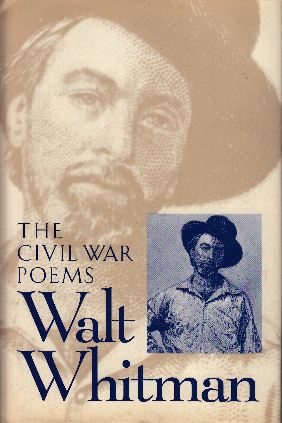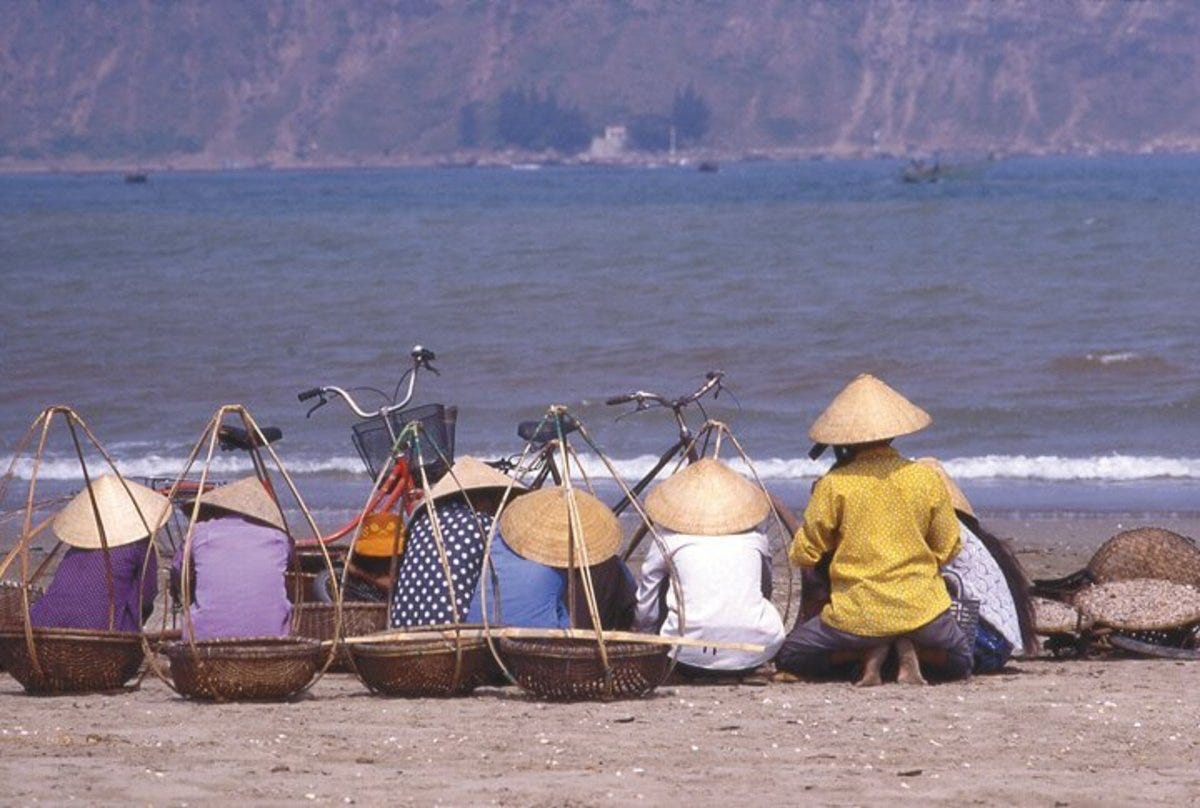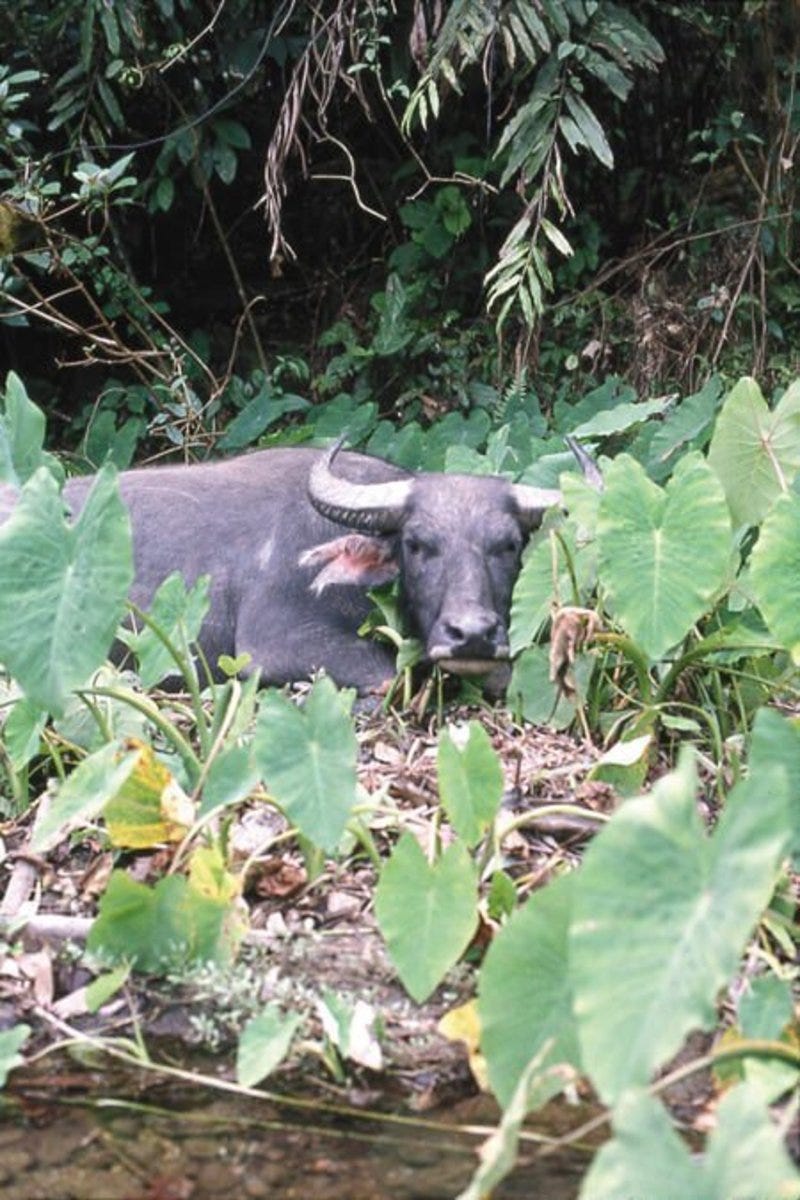Every war is a war against children.
– Egalntyne Jebb, founder of Save the Children a century ago.
We can celebrate and ruminate on any day of any month, and April is one of those months that have milestones and remembrances vital to me, and important to tens of millions.
I’ve written about National Poetry Month before for many publications, including Dissident Voice and the New Times. This celebration of poetry was introduced in 1996 and organized by the Academy of American Poets as a way to increase awareness and appreciation of poetry in the United States.
For me, way before this recognition, I was deeply steeped into poetry – creative writing, too. A poet is a creative, a writer, and that person is more than someone like Pablo Neruda, Chile’s famous poet. For my own tutelage, poetry also means advocating revolution.
I was in Nicaragua in the 1980s, and I certainly embraced this revolution against the thug dictator. Some call this Sandinista rebellion as a revolution of poets: Ernesto Cardenal, Mejía Godoy, Sergio Ramírez, Gioconda Belli, and Rosario Murillo, currently the Vice President and First Lady of the country.

Someone who is almost my contemporary, Omar Cabezas Lacayo (born 1950 in León, Nicaragua), is a Nicaraguan author, revolutionary and politician. He was a commander in the guerrilla war against Anastasio Somoza and prominent Sandinista party member. His personal account of his time as a guerrilla fighting the dictatorship, published in Nicaragua, is entitled Fire From the Mountain.

However, my introduction to poetry came from one side of my family, Scots, a grandmother, aunts and uncles living Ayr, the home of Robert Burns (1759-1796), Scotland’s national poet. I was 18 months of age with my family in Ayr absorbing recitations of Burns.
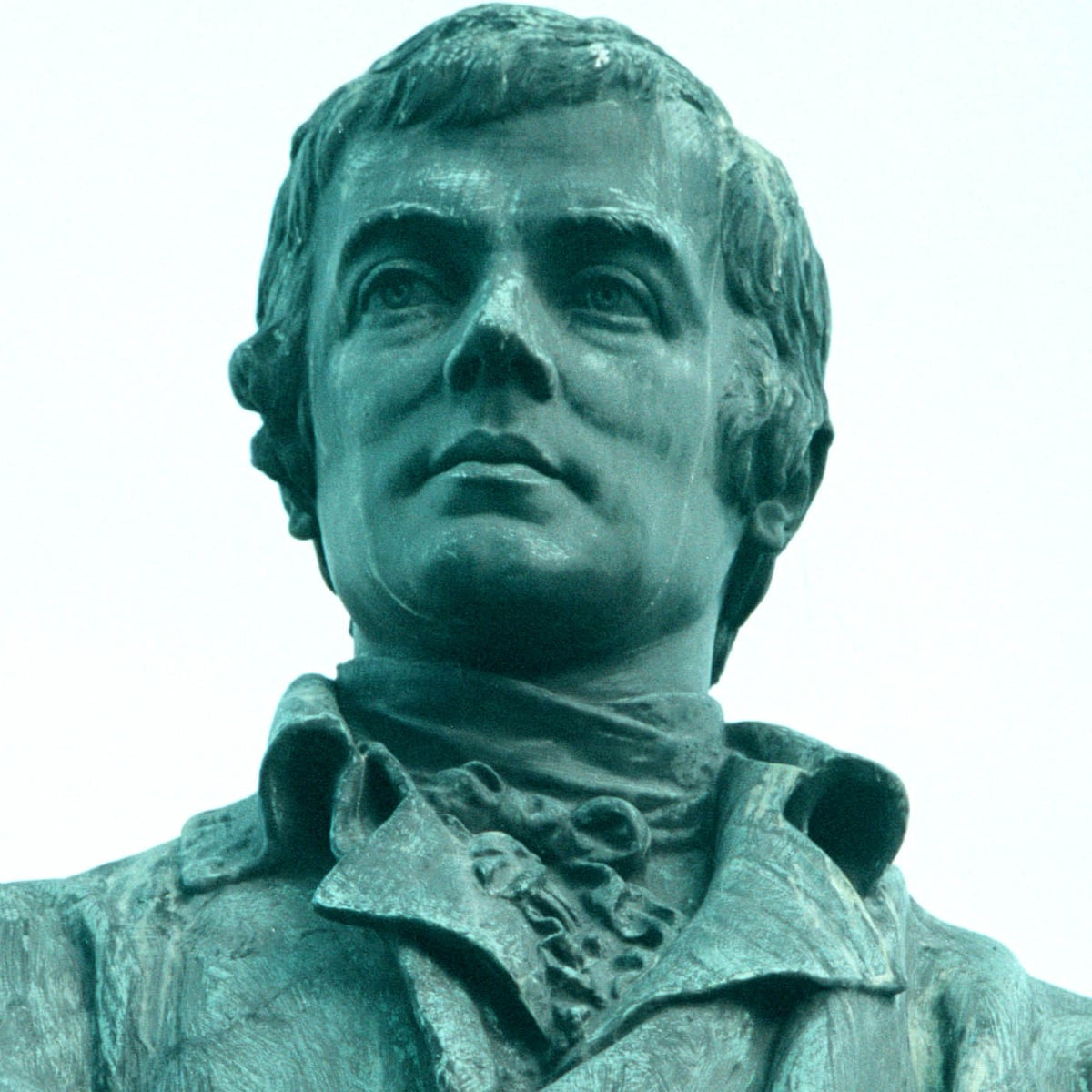
Burns came from a working family, unlike most of Britain’s men of letters. “Tam O’ Shanter” is Burns’ poetic masterpiece. The climax is a witches’ Sabbath, attended by all kinds of gruesome sights. And pride of place in this hellish scene is given to lawyers and priests:
Three Lawyers’ tongues, turned inside out,
Wi’ lies seamed like a beggar’s clout;
Three Priests’ hearts, rotten, black as muck,
Lay stinking, vile, in every neuk.
Many wonder how Burns’ poetry ever succeeded since he had no formal training; he managed to produce the finest lyrical poetry that ever emerged from these Isles. Burns’ lyricism is written, not in English, but in his own tongue, the dialect of the Scottish Lowlands. His song is as natural as the woodlark’s.
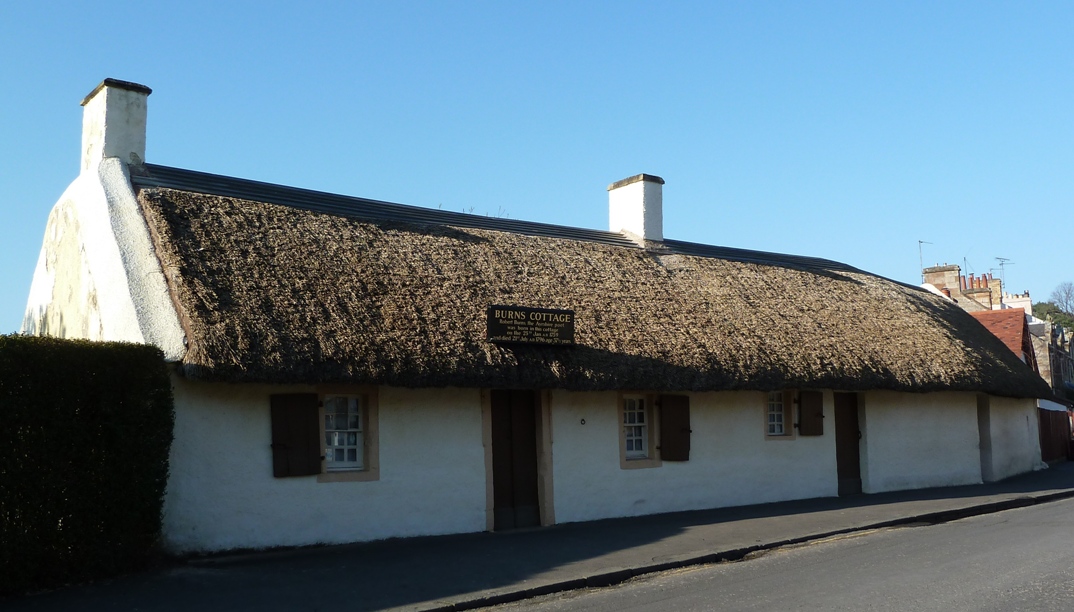
So many great writers have entered my mind, heart and imagination. I was a freshman at the University of Arizona (1975) in poet Richard Shelton’s class whereupon he recruited some of us to head up to the Arizona State Penitentiary for writer’s workshops he facilitated, with convicts behind bars. His book, Crossing the Yard: Thirty Years as a Prison Volunteer (2007), is more about Shelton’s professional fulfillment and a testament to the transformative power of writing for him, as well as the prisoners.
I hearken back to Walt Whitman (1819-1892), our own American poet (essayist and journalist, too). He was a humanist, and he worked as a stretcher bearer in the American Civil War. He embraced the power of transition — between transcendentalism and realism, incorporating both views in his works. For many, he is the father of free verse. Whitman on being a poet:
This is what you should do: love the earth and sun and the animals, despise riches, give alms to everyone that asks, stand up for the stupid and crazy, devote your income and labor to others, hate tyrants, argue not concerning God, have patience and indulgence toward the people, take off your hat to nothing known or unknown or to any man or number of men … re-examine all you have been told at school or church or in any book, dismiss what insults your own soul, and your very flesh shall be a great poem.
April 22 is traditionally tied to Earth Day, which I have been a large part of as organizer in several locales, including Spokane. This celebration of our web of life started in 1970 with the amazing book by Rachel Carson, Silent Spring, as the bible of environmentalism.
But then, April 30 also is another date, the starting date of the Fall of Saigon (1975) with the defeat of American forces in Vietnam. I was there in 1994 and 1996, and in 1995 I organized a 20th Anniversary look back on “Vietnam” where I put literary, visual, cinematic and theater arts front and center for this month-long event sponsored by dozens of groups, including my two schools – UT-El Paso and El Paso Community College.
The poets looking at war, the Vietnamese, the trauma and the country stirred me to action.
While I never met Carson or Whitman, I did spend time with Denis Levertov, who was an ardent supporter of poetry of protest. With Muriel Rukeyser and several other poets, Levertov founded the Writers and Artists Protest against the War in Vietnam. She took part in several anti-war demonstrations in Berkeley, California. In the ensuing decades she spoke out against nuclear weaponry, American aid to El Salvador, and the Persian Gulf War.
I go to a Vietnamese poet, Thanh Thao, from his poem, “A Soldier Speaks of His Generation” (1973) as a capstone of this opinion piece with my drumbeat concussing why poetry is so important:
They are so very young
as they flicker along on the stream
into a faraway meadow
on an endless evening.
They’re the people who came first
twenty years ago as one generation
and also the ones who will come later,
twenty years from today.
That evening
on the small canal
artillery attacks and flowing water.
How clearly you can see
the faces of
our generation!
*****Existential Crisis
I’ve been closely tied to poets — the term also hits close to home, as in “fellow” writers in general — and the potential for change through language. Today, so-called poets write insipid junk about Zelensky, about a new Churchill or David!
Others were more sipid, such as Robert Bly who helped redirect the creative surge of Modernism’s influence on poetry by unraveling his words and lines into what Victoria Frenkel Harris has called “incorporative consciousness.” Bly believes that the poet or creative thinker must go “much deeper than the ego … at the same time [becoming] aware of many other beings.” In a sense, he believes that “leaping out” of the intellectual world and into what we intuitively hold as our own realities best explores the paradoxes of two worlds: the world of our psychic pain, and the world in which we must adjust to observing the rules.
Bly came to prominence during the Vietnam War era — a time that tore at the psychic integration of American culture. He recalls how controversial his work was then: “Most of the English teachers in the universities hated our doing ‘political poems,’ as they were called. That still happens,” he recently said about those heady days of the ’60s. “When I’m at a reception at a university these days, an English professor may come up to me and ask: ‘How do you feel now about those poems you wrote during the war?’ They want me to disown the poems. I say, ‘I’m sorry I didn’t write more of them.’”
Bly, along with David Ray, created the group American Writers Against the Vietnam War. The first important protest volume was A Poetry Reading Against the Vietnam War (1966), edited by Bly and Ray.
In one of his poetry collections, The Light Around the Body, Bly cast a beacon of hazy light upon the symbiotic relationship of poverty and racism and the country’s involvement in the Vietnam War.
As a reminder of Bly’s continuing relevance, consider that he’s an anti-war activist of long standing. In the Dec. 9, 2002 issue of The Nation, Bly was one of the first to beat the earth drum against the impending war, in his poem, “Call and Answer”:
Tell me why it is we don’t lift our voices these days
And cry over what is happening. Have you noticed ? The plans are made for Iraq and the ice cap is melting?
I say to myself: “Go on, cry. What’s the sense
Of being an adult and having no voice? Cry out! See who will answer!”
*****But in 2023, the rot has flooded almost all people in the Western world. Censorship, the New Blue McCarthyism, and unimaginable crimes supported. This existential crisis for me is around cohorts who call themselves “poets” but who are navel gazers, looking at their folds of skin over time and waxing about getting old. Fine, that perspective, for sure, but in the past 40 years, and now, breakneck speed since the Planned Pandemic, and now, the Proxy War, and the Trump Years, and the Russia Ain’t at the Gate madness, my so-called fellow writers have fallen flat.
They do not look at the depth of how messed up the world is — poverty, land theft, murder incorporated in all parts of the world, those 800-plus US military bases, the ungodly hundreds of trillion$ dollars thrown at war lords, war dogs — but instead go into themselves, look at the raven in the sky and the time ticking off around their sagging eyes.
Political poetry? Great dervishes of pain calling out the entire cabal of capitalist killers.
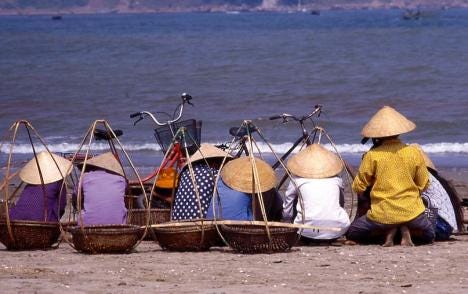
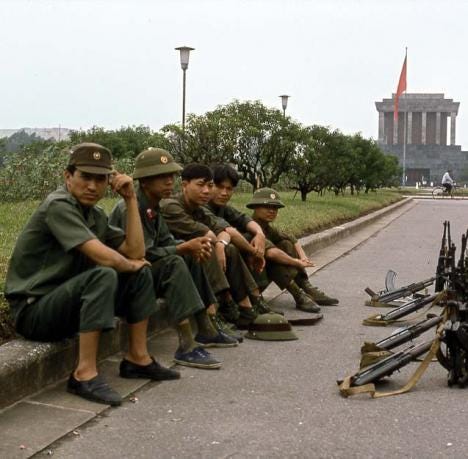
*****Slaying Dragons, Slaying Demons
Resistance in the Womb – Vietnam Is in My DNA











